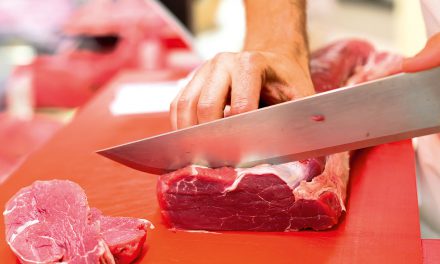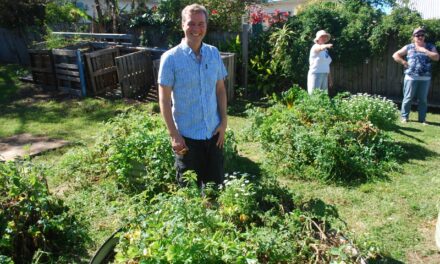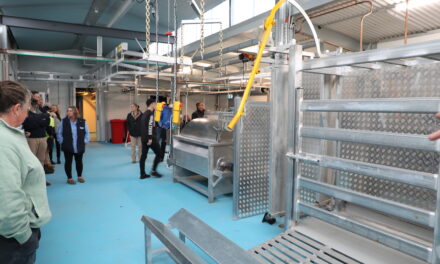Diversity of courses at your fingertips
For many small area landholders, training in rural and agricultural knowledge and know-how has largely been an on-the-job undertaking, but more recently, a diverse offering of courses have become available in the classroom, in the field and online.
“The changing agricultural environment has influenced the demand for education services,” says Rural Skills Australia general manager Tony Dwyer.
“There is a plethora of agriculture-related courses being offered across Australia, with many shirking traditional formats such as through school, TAFE or Registered Training Organisations (RTOs), agricultural colleges and universities in favour of flexible learning and knowledge uptake via online and blended learning methods,” he explains.
“Funding also plays a key role in how and where agricultural and rural training is accessed. By way of example, the age category 25-40 years is reporting increased demand for training yet cannot attract government funding to help subsidise and reduce costs for participants.
“On the other hand, funding support for increasing the skills of those already employed in agriculture (as opposed to new entrants) is on the rise. Trainee and apprentice numbers have fallen 50-60 per cent from where they were three years ago, yet some RTOs are reporting record enrolments in both accredited and non-accredited courses.”
For the small landowner looking to gain skills however, whether in mainstream “traditional” agriculture, or in specialised and niche areas, there has never been a better time to learn.
Hundreds of courses are available, with fee-for-service offerings seeing a sharp rise in popularity thanks in part to their often tax deductible nature. But with so many courses available, there are many options when deciding what to study and where to study.
“Look closely at the courses offered by each provider, because different providers might offer a different type of specialisation or practical application,” advises Tony.
“It’s important to make sure that you are clear on what is being offered to ensure that you enrol in the course that is right for you. Double check certification outcomes for chemical courses and check that the courses you are enrolling in are endorsed by industry – where possible, seek guidance from experts within your industry.
Vocational Education and Training
While some rural skills training remains unstructured and informal, principal education streams continue to be Vocational Education and Training (VET) and university education.
VET prepares students for specific trades, crafts and careers at various levels by delivering education and training that focuses on developing specific skills and knowledge required for specific industries.
VET courses provide many options from short courses, introductory and advanced certificates to get you into certain agricultural industry areas, diplomas that demonstrate high levels of technical knowledge and graduate certificates for particular occupations.
VET qualifications include Certificates I – IV, Diplomas, Advanced Diplomas, Graduate Certificates and Graduate Diplomas. Some examples of current VET qualifications include:
- Certificate II in Agriculture
- Certificate II in Rural Operations
- Certificate II in Shearing
- Certificate II in Wool Handling
- Certificate II Program in Dairy Induction
- Certificate II in Agriculture
- Certificate III in Agriculture (Dairy Production)
- Certificate III in Shearing
- Certificate III in Urban Pest Management
- Certificate III in Wool Clip Preparation
- Certificate IV in Agriculture
- Certificate IV in Wool Classing
- Diploma of Agriculture
- Bachelor of Agriculture
Specialised agricultural colleges such as Roseworthy in South Australia, Dookie in Victoria and Tocal in NSW have purpose-built campuses offering training to a wide variety of students. Marcus Oldham College in Victoria offers three courses at its state-of-the-art Geelong campus, including a Bachelor of Business (Agriculture), Bachelor of Business (Agribusiness) and a one-year Diploma of Equine Management. Practical placement is a component of each course, as is the Marcus Oldham pre-entry year.
Short courses
Accredited and non-accredited short courses – often undertaken by small groups on a fee-for-service basis, have become a great way for landowners to quickly gain skills and knowledge in new and existing fields. Examples of short courses, typically one to five days, include:
Chemical Card, operate chainsaws safely, Pest Management Technician endorsed for Control of Vertebrate Pest, Pest Technician Licence for Control of Weeds, care for and train working dogs, operate quad bikes, OHS&W, tractor and front-end loader training.
Providers such as Rural Industries Skills Training, TAFE, Ruralbiz Training, just to name a few, accommodate students from a variety of backgrounds into their courses throughout the year.
Non-formal training: industry leading the way
Non-formal agricultural education and training takes many forms, including field days, short courses, farmer networks and seminars. It is used extensively by existing workers in the agriculture sector to enhance skills and knowledge.
Non-formal education and training is offered by a range of providers, including the Department of Primary Industries, RTOs, industry bodies, farming systems groups and the private sector.
In recent years, industry has taken a leading role in developing training programs and materials to help its workforce adopt best-practice skills and apply the most relevant research outcomes to its agricultural businesses.
The highly successful Lifetime Ewe Management program, developed and run by Rural Industries Skill Training and supported by AWI and the Cooperative Research Centre for Sheep Industry Innovation, is now in its eleventh year, with some 3000 graduates since its inception.
The industry-leading, nationally accredited program reports big benefits for Australia’s sheep and lamb industry, with increased lamb weaning rates rising by 30 per cent a hectare, ewe mortality reduced by 50 per cent and profit increases of up to $12 per ewe documented by graduates. Additionally, LTEM has influenced some 10 million ewes – more than a quarter of the national flock.
LTEM involves groups of five to seven producers and six hands-on sessions over a period of 12 months to cover one breeding cycle, generally starting around weaning or pre-joining.
The timing of each workshop is linked to critical stages in the management of the ewe’s reproductive cycle. All sessions involve a visit to each participant’s farm and focus on condition scoring, pasture assessing, feed budgeting, weaning and preparing ewes for joining, pregnancy management and ewe nutrition, ram preparation and forward planning activities that are practical and applicable to the farm business.
The program also focuses on improving producer understanding of the influence ewe nutrition has on the performance of the ewe and her progeny.
Meat and Livestock Australia also delivers Bred Well Fed Well; a practical, one-day workshop highlighting the key production benefits of superior genetics, plus feed management for improved reproductive performance and flock productivity.
Producers are able to use the outcomes of the workshop to help analyse and plan a genetics and nutrition regime suited to their environment, and markets to boost flock profitability.
Workshops focus on:
- improved understanding of how to use ASBVs to improve enterprise profitability;
- how to develop a breeding objective for your sheep enterprise;
- the impact of better management of ewe nutrition on reproductive performance and flock profitability; and
- skills in developing simple energy budgets for the ewe flock.
Practical sessions include condition scoring, feed budgeting, ram rankings and ram selection.
Other MLA workshops and courses include BeefUp, The Business EDGE workshop and ReproActive as well as MSA training via an online portal.
The Grains Research and Development Corporation sponsors a number of workshops and courses throughout the year for both members and non-members. Examples include ChemCert and the popular Advanced Farm Business Management Courses.
The future of agricultural skills training
“Education and training offers a number of benefits for the agriculture sector, including increased productivity, innovation and profit. The changing nature of agriculture and the need to respond to a range of economic, environmental and market challenges means that the workforce will increasingly require higher skill levels and qualifications,” says Tony.
“Traditionally the agriculture sector has placed a strong focus on skilling its workforce through on-the-job learning and practical experience, however online learning and flexible training delivery are becoming increasingly important, along with courses that can be completed quickly and efficiently whilst delivering essential skills to participants from a wide variety of backgrounds and knowledge levels.”
For more information, visit








